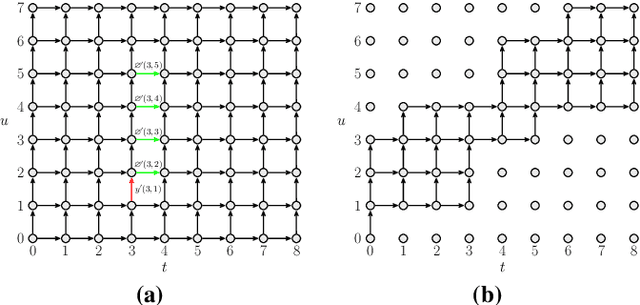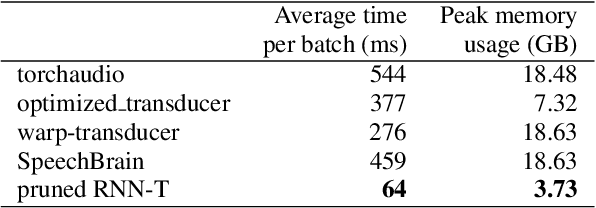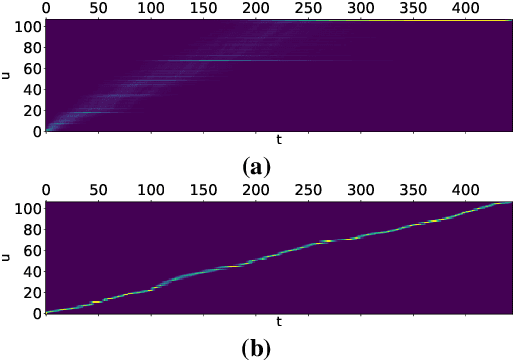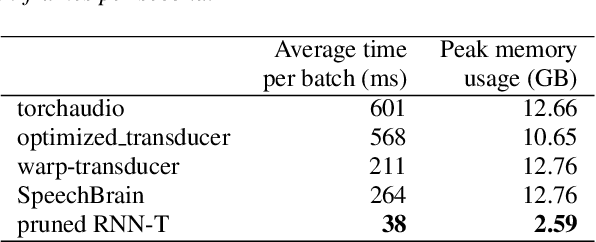Pruned RNN-T for fast, memory-efficient ASR training
Paper and Code
Jun 23, 2022



The RNN-Transducer (RNN-T) framework for speech recognition has been growing in popularity, particularly for deployed real-time ASR systems, because it combines high accuracy with naturally streaming recognition. One of the drawbacks of RNN-T is that its loss function is relatively slow to compute, and can use a lot of memory. Excessive GPU memory usage can make it impractical to use RNN-T loss in cases where the vocabulary size is large: for example, for Chinese character-based ASR. We introduce a method for faster and more memory-efficient RNN-T loss computation. We first obtain pruning bounds for the RNN-T recursion using a simple joiner network that is linear in the encoder and decoder embeddings; we can evaluate this without using much memory. We then use those pruning bounds to evaluate the full, non-linear joiner network.
 Add to Chrome
Add to Chrome Add to Firefox
Add to Firefox Add to Edge
Add to Edge